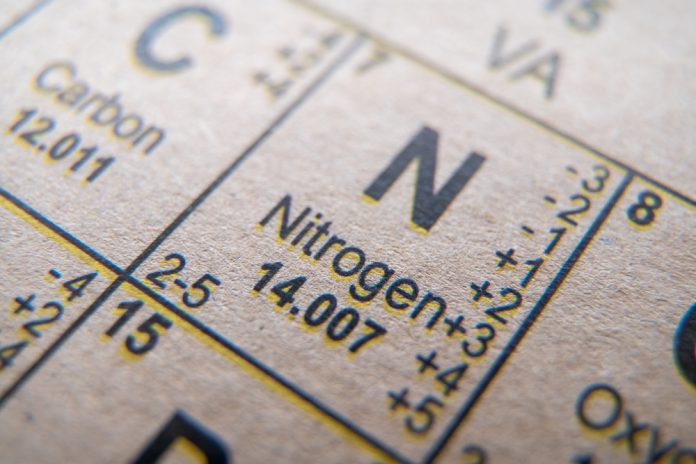Nitrogen fertilisers and nitrogen oxides from fossil fuels are notorious for their harmful environmental impacts, polluting air and water, over-fertilising ecosystems, reducing biodiversity, and damaging the ozone layer.
However, a recent study led by scientists from the Max Planck Institute for Biogeochemistry in Jena reveals a surprising aspect: nitrogen emissions also have a net cooling effect on the climate.
Discovery of nitrogen emissions’ climate impact
The international team of researchers embarked on a comprehensive analysis of the climate effects of nitrogen emissions from various sources.
Elemental nitrogen, which makes up 78% of the air, is climate-neutral. However, other forms of nitrogen, known as reactive nitrogen, can significantly impact the climate, either warming or cooling it.
For instance, nitrous oxide, emitted from nitrogen-rich soils and fossil fuel combustion, is a potent greenhouse gas, almost 300 times more effective than CO2 at trapping heat.
This discovery highlighted the complex role nitrogen emissions play in climate dynamics.
Exploring the cooling effects of nitrogen emissions
Contrastingly, nitrogen oxides from fossil fuel combustion contribute to cooling by forming fine particulate matter that reflects sunlight.
Ammonia from fertilisers also promotes plant growth, enhancing CO2 absorption and contributing to a cooling effect.
Furthermore, nitrogen oxides aid in breaking down atmospheric methane, another greenhouse gas, though they also stimulate the formation of ozone in the troposphere, which enhances global warming.
Comprehensive analysis
For their study, the team compiled data on the quantities of various nitrogen compounds in soil, water, and air.
They integrated this data into models from the NMIP2 project, simulating the global nitrogen cycle and its effects on the carbon cycle, including plant growth and atmospheric CO2 and methane levels.
These simulations were used in an atmospheric chemistry model to calculate the impact of nitrogen emissions on radiative forcing, or the radiant energy hitting one square metre of Earth’s surface per unit time.
The findings suggest that human-derived reactive nitrogen has a net cooling effect of -0.34 watts per square metre.
This finding was juxtaposed with the IPCC’s report stating that human activities have increased radiative forcing by 2.7 watts per square meter over the past decade, leading to a global temperature rise of 1.1°C since pre-industrial times.
Implications and concerns about nitrogen emissions
Despite the cooling effect, the researchers emphasise that nitrogen emissions should not be seen as a climate mitigation tool due to their significant negative impacts on health, biodiversity, and the ozone layer.
“The current findings are no reason to gloss over the harmful effects of nitrogen emissions,” warns Sönke Zaehle, the leader of the study. “They should not be seen as a means of combating global warming.”
A call to action
The research highlights the intricate role of nitrogen emissions in the Earth’s climate system.
While reactive nitrogen compounds have a net cooling effect, their environmental and health impacts necessitate careful management.
The study calls for a balanced approach that combines reducing nitrogen emissions with aggressive cuts in fossil fuel-derived greenhouse gases to protect both the environment and the climate.









